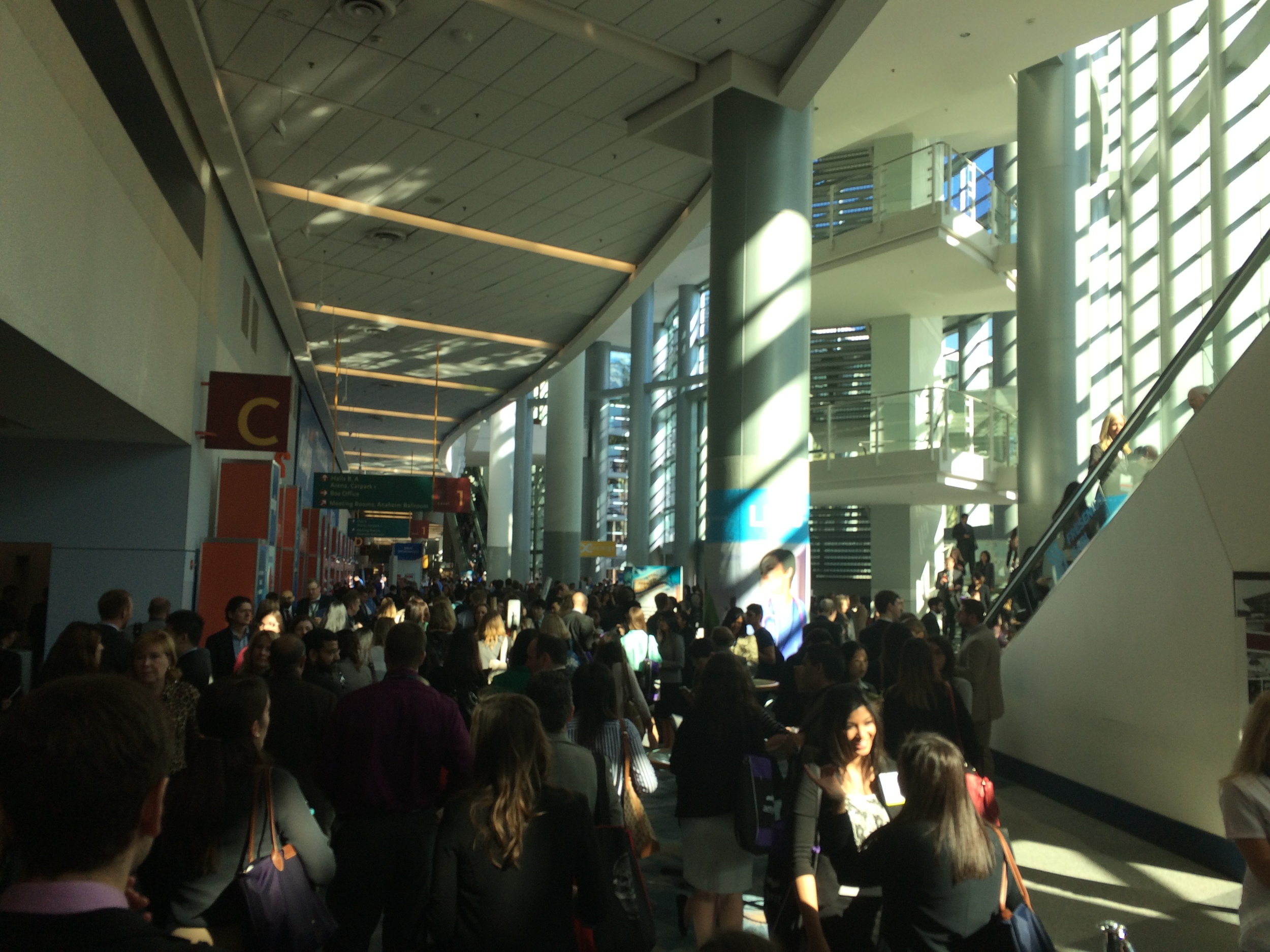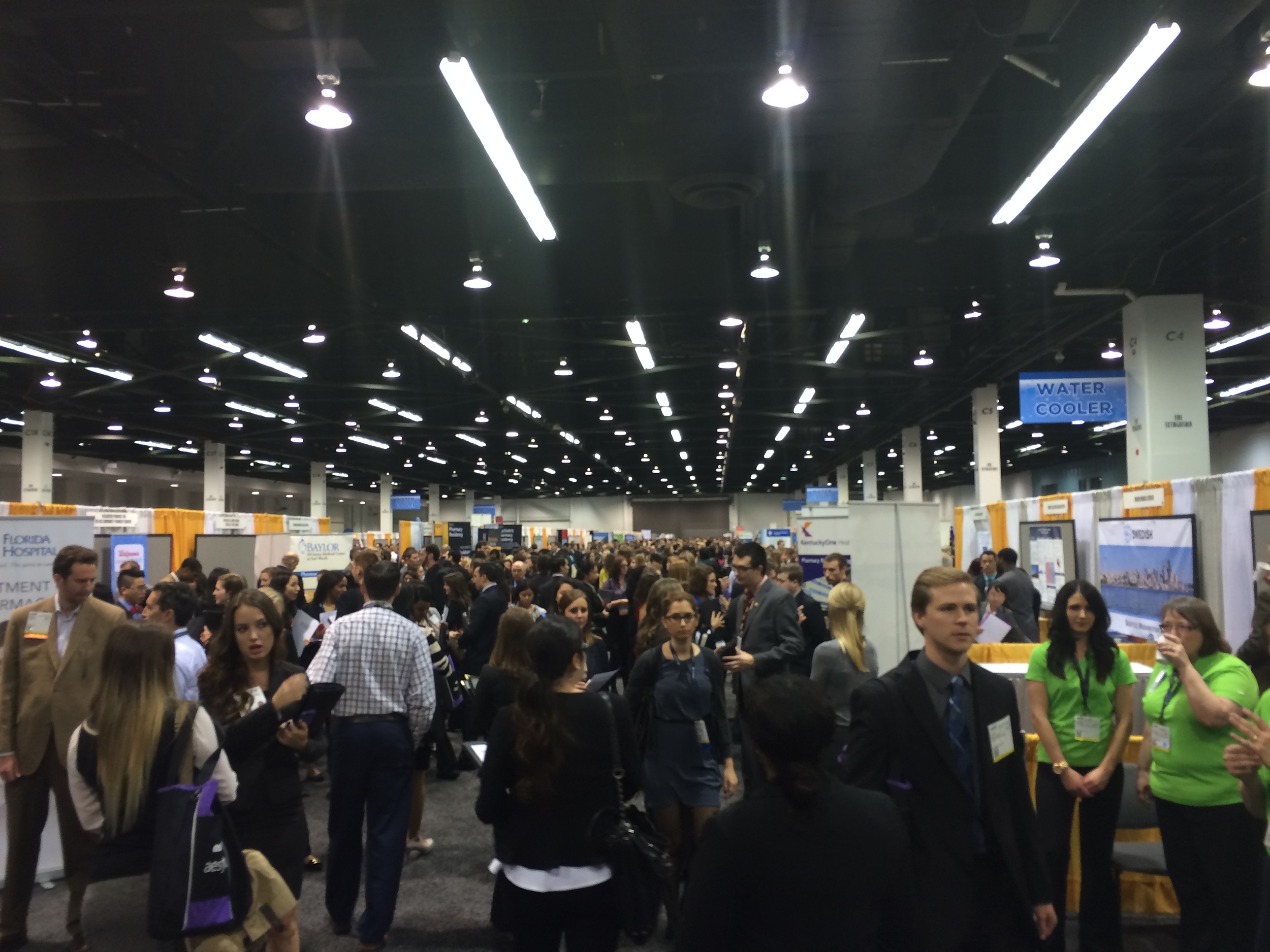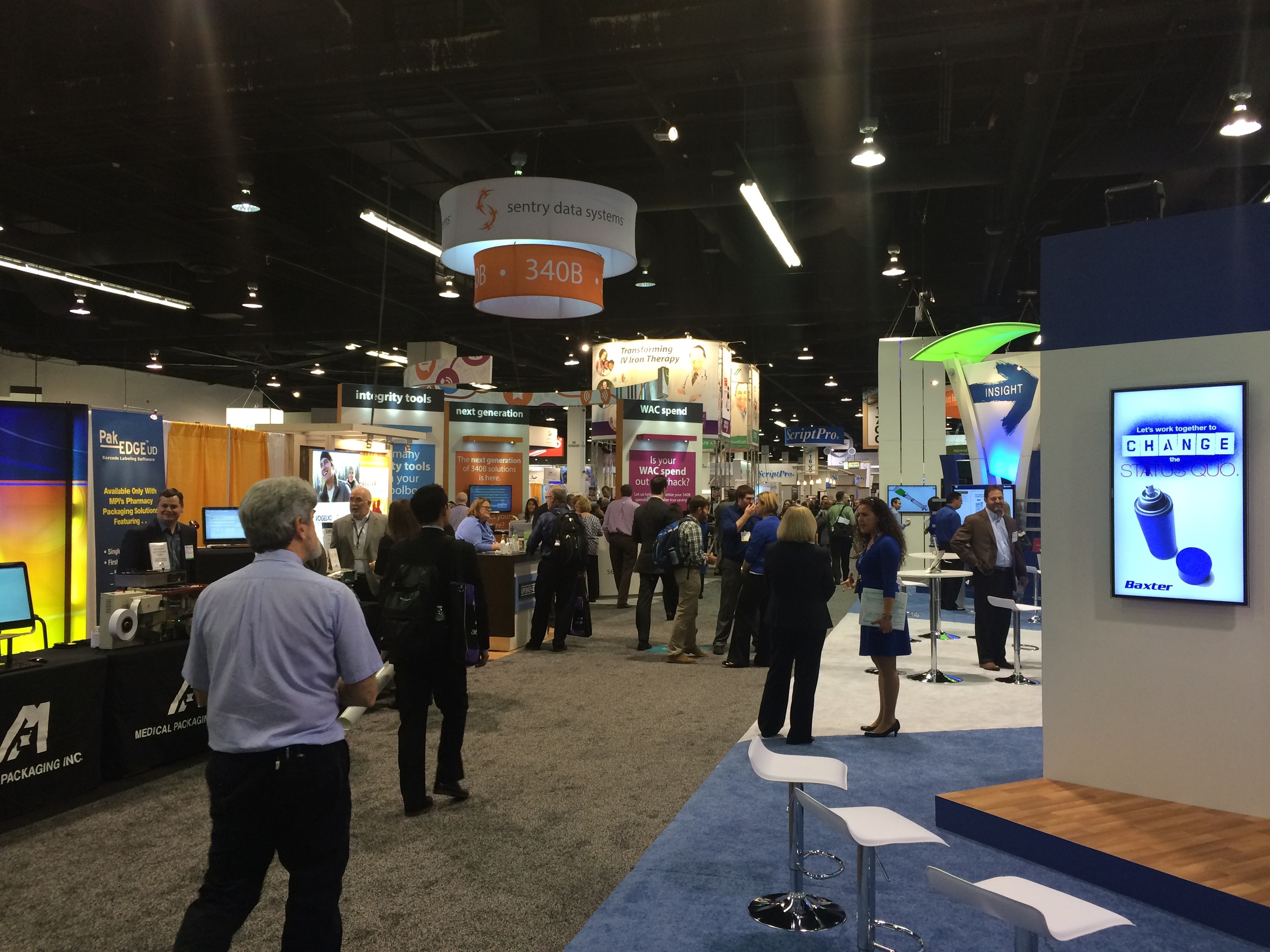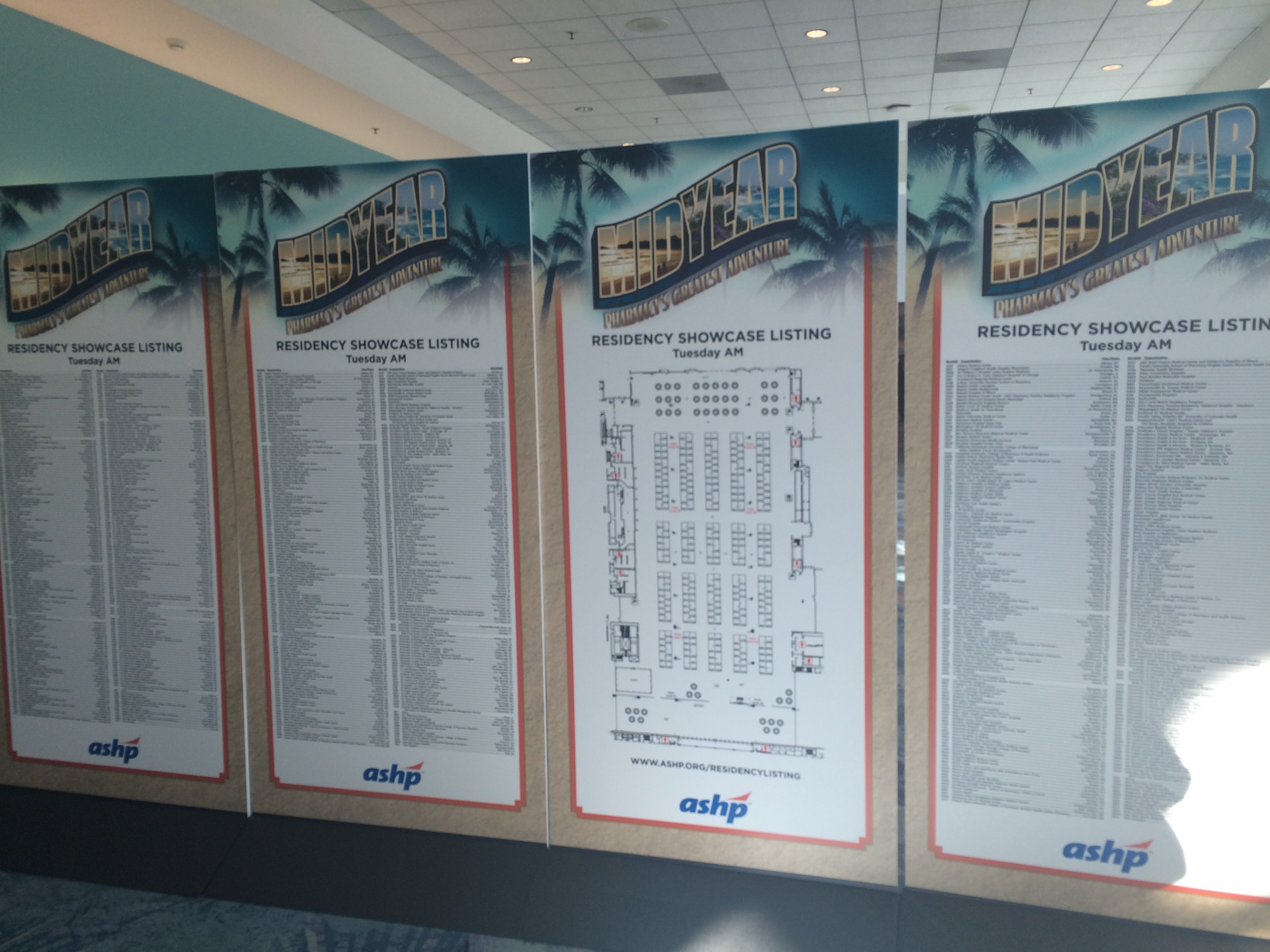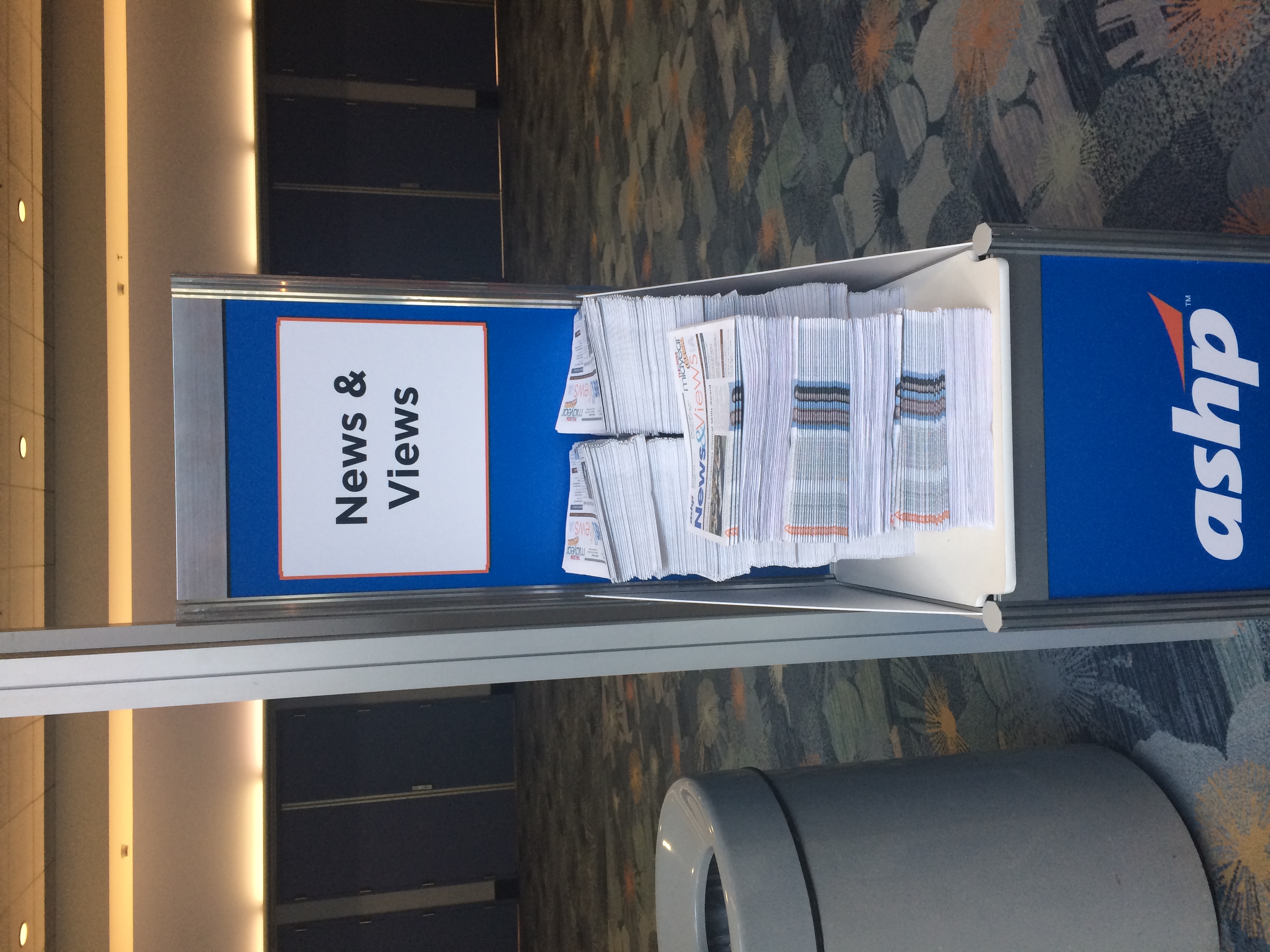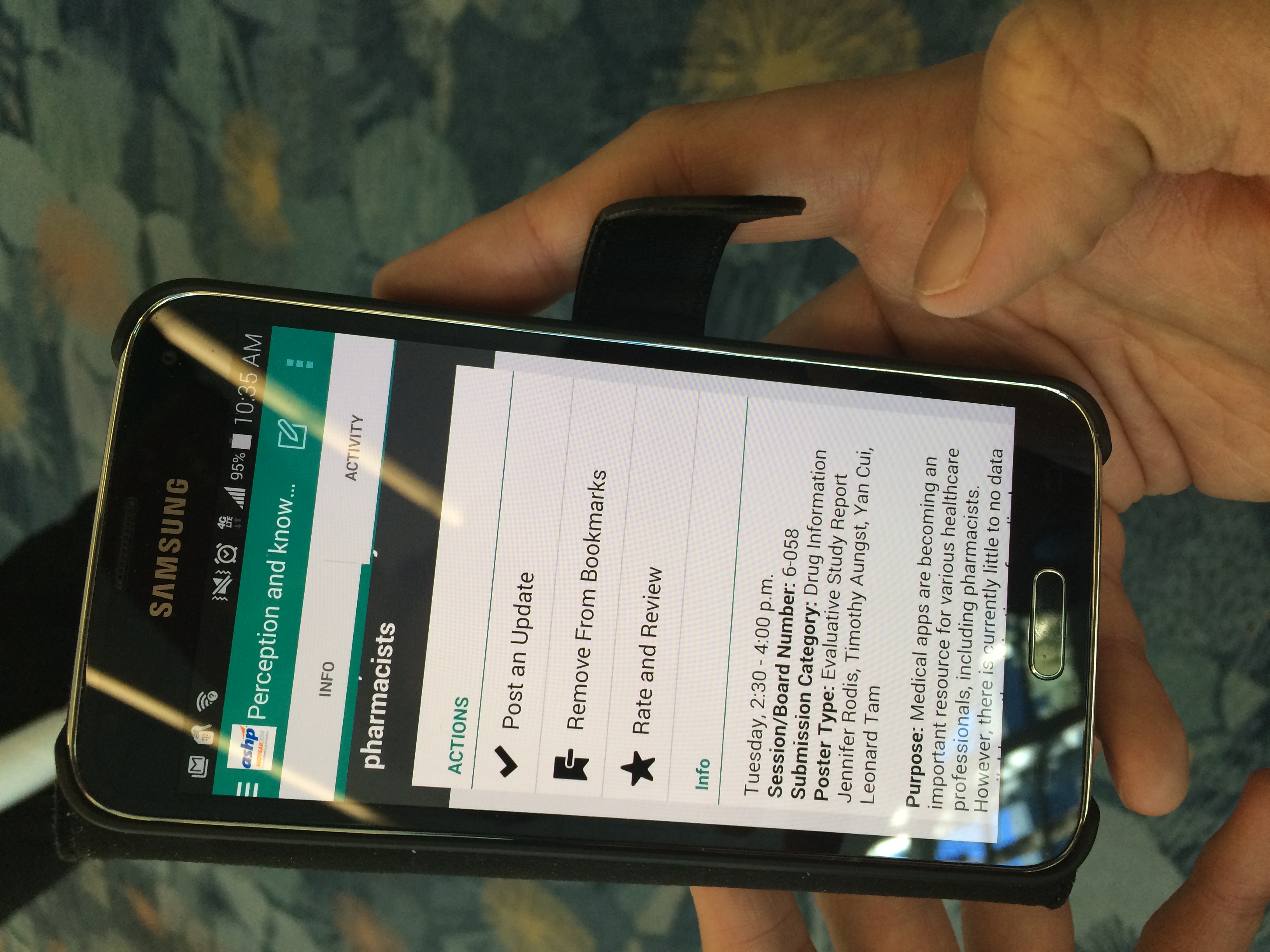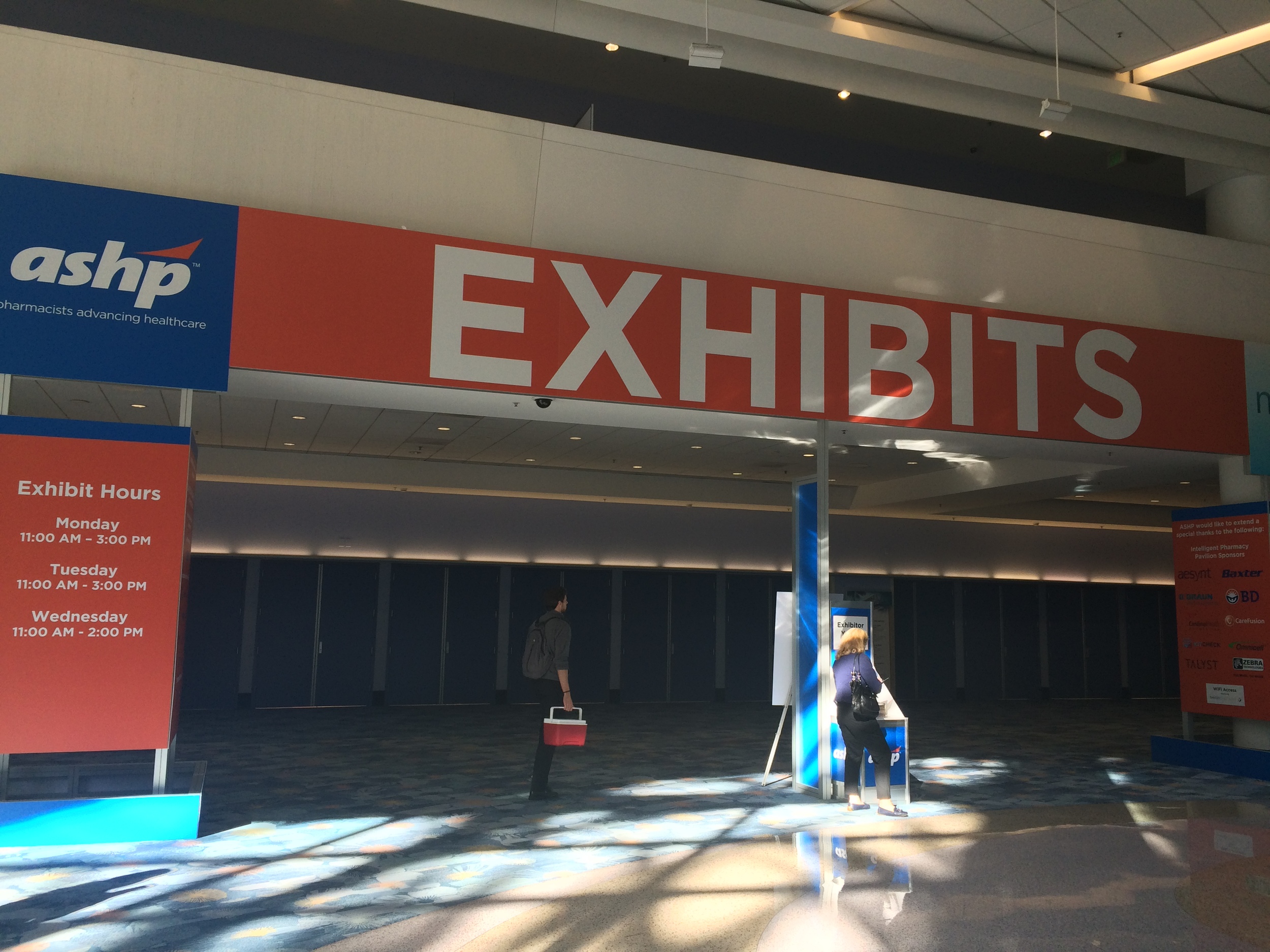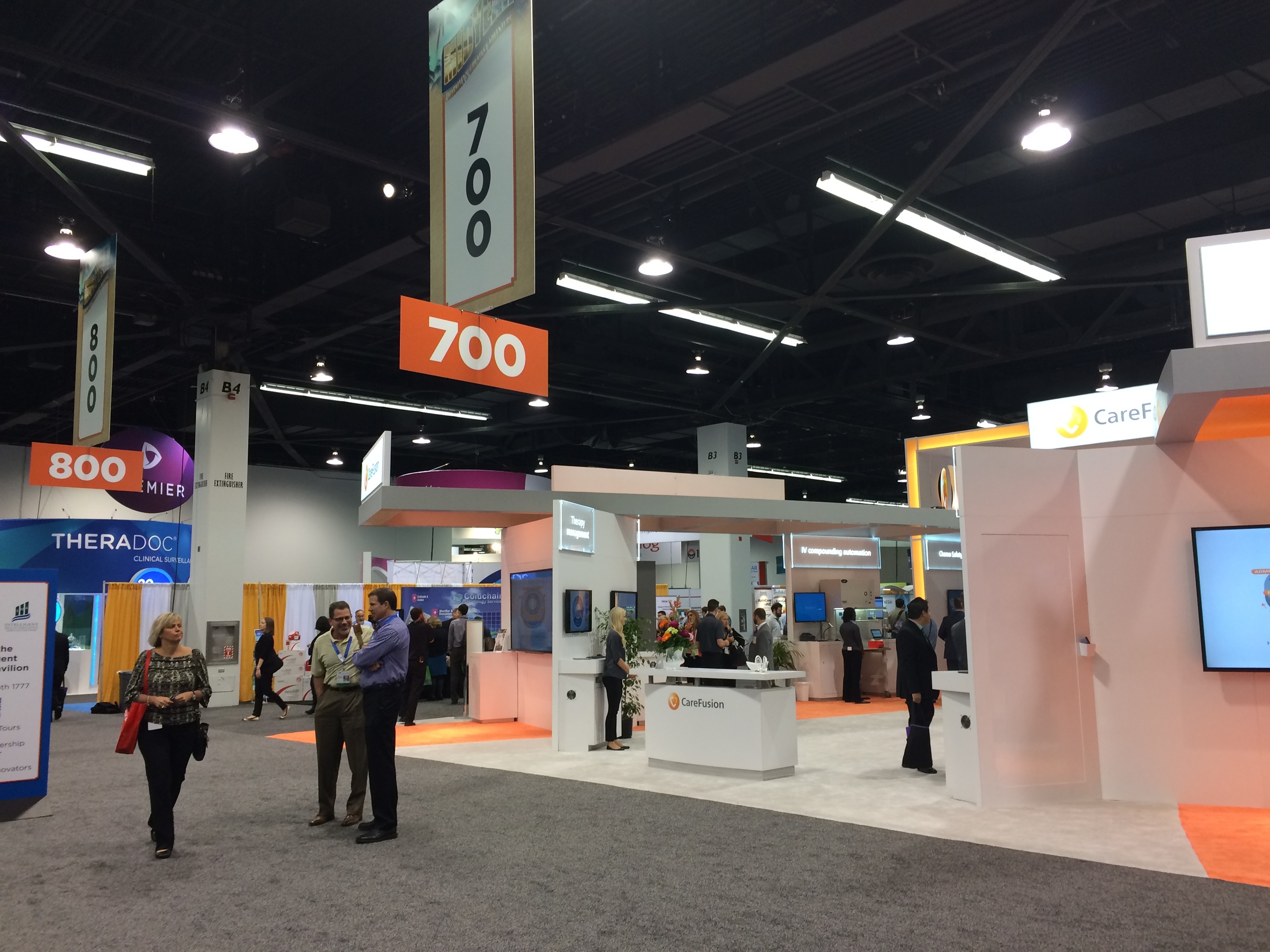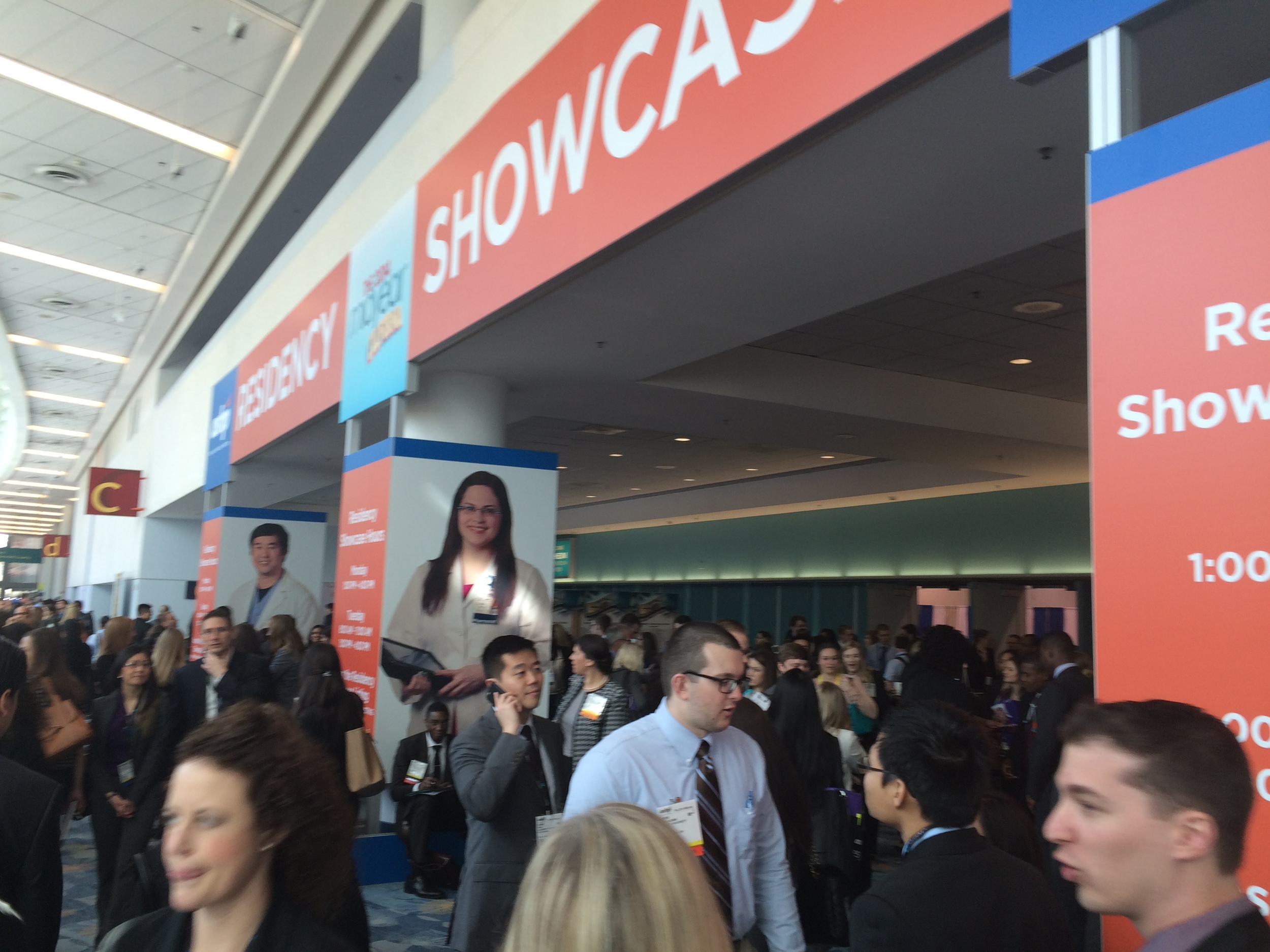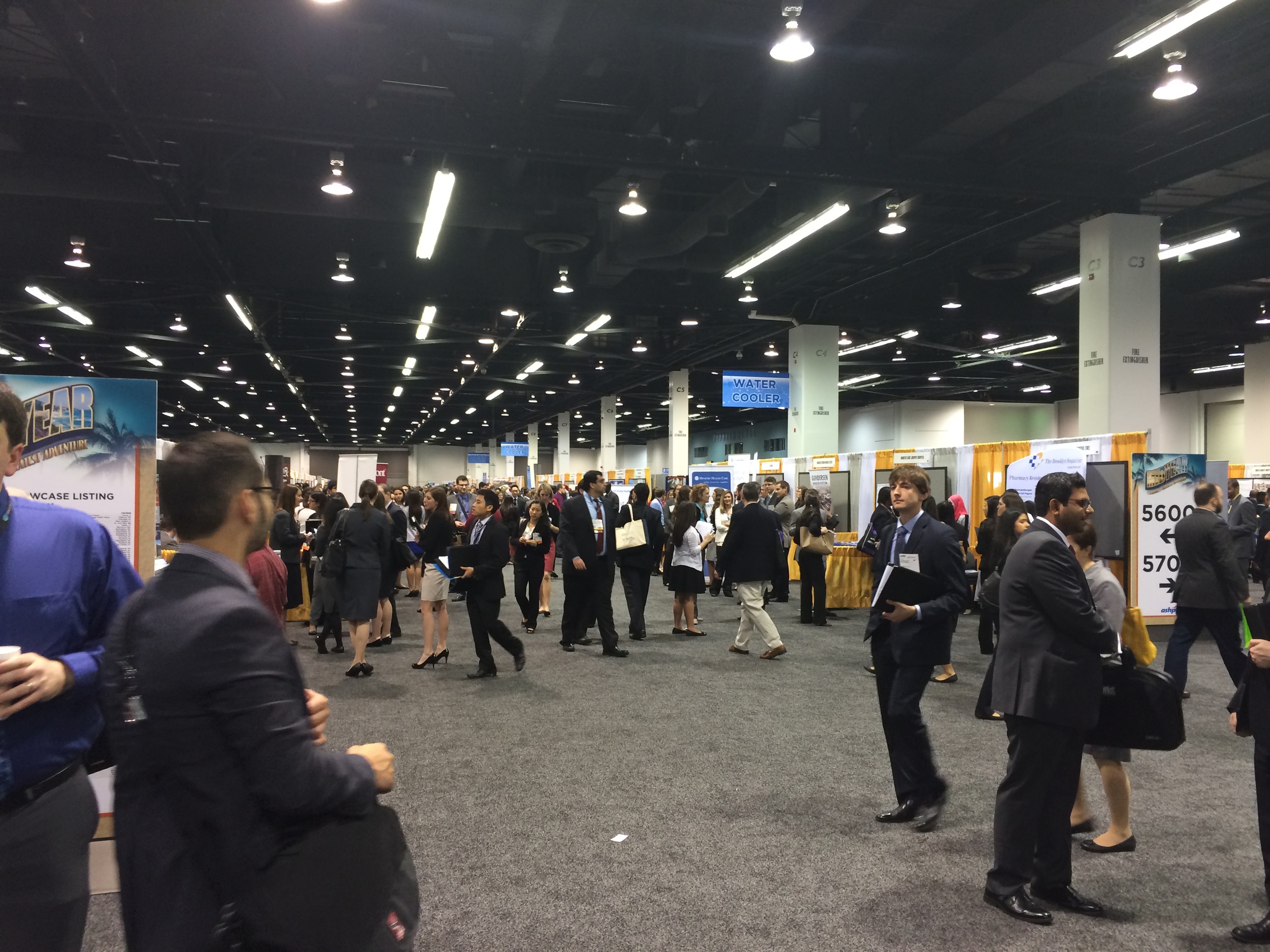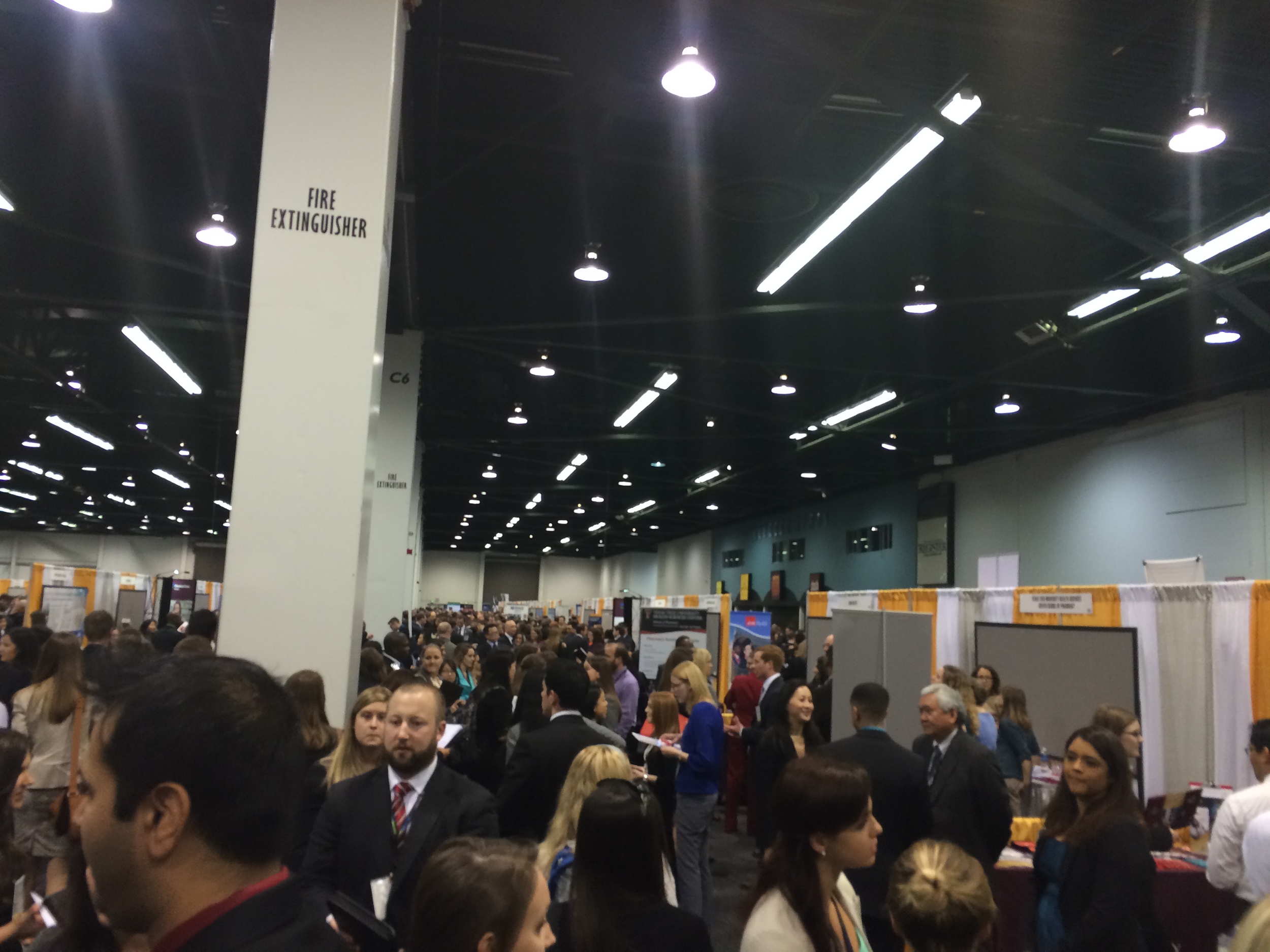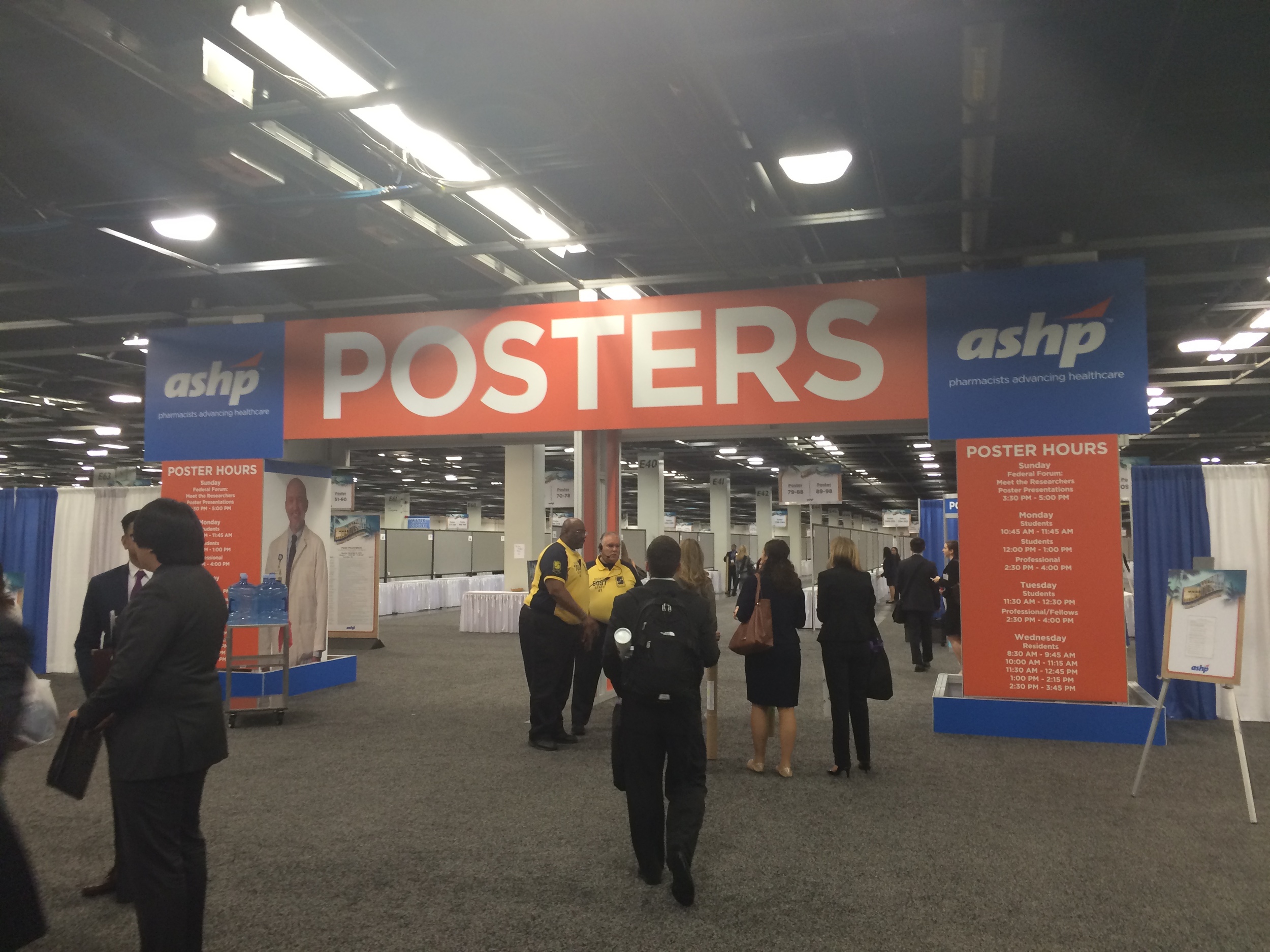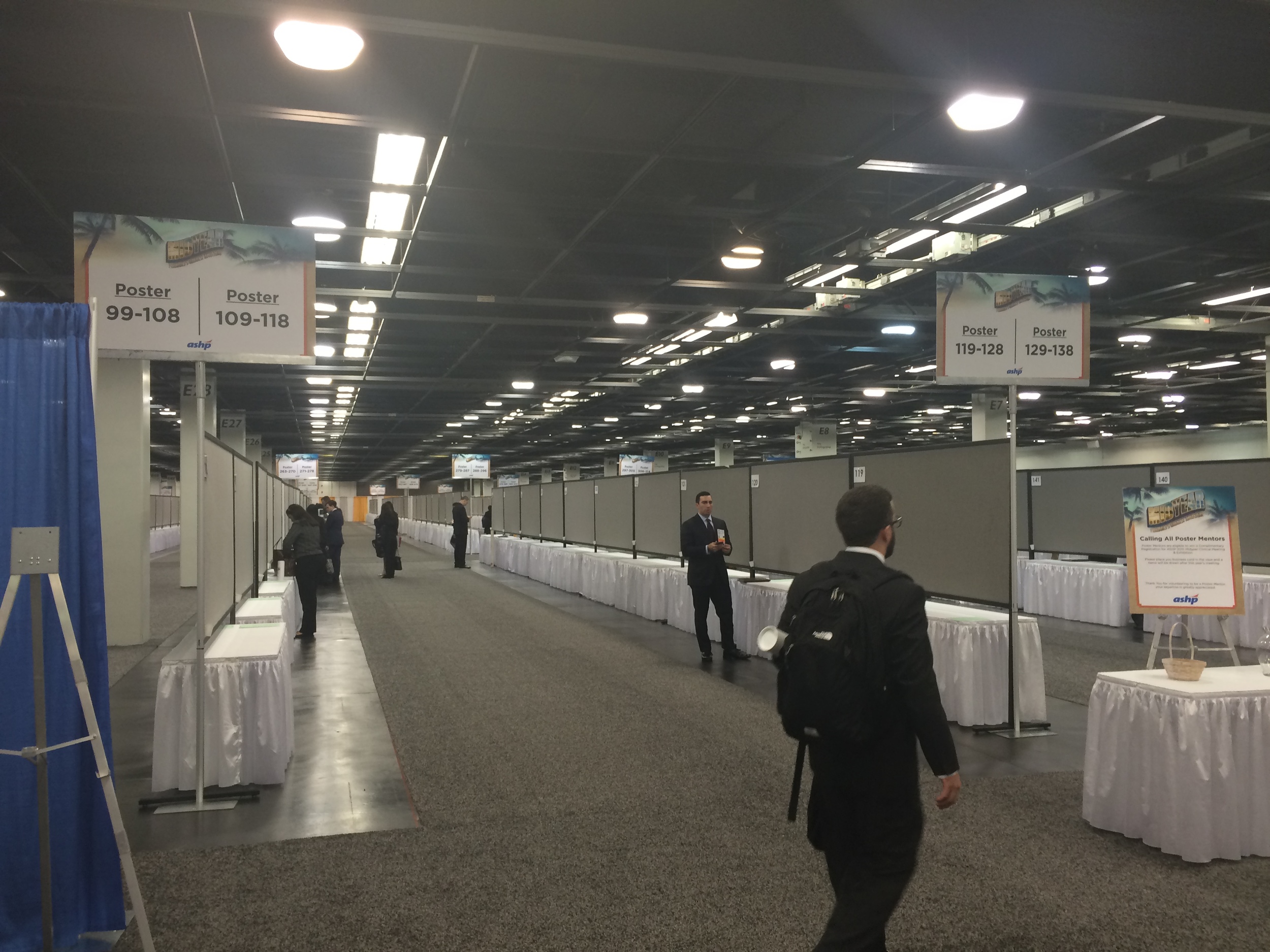Residency Timeline Handout
Recently I created a timeline to help students thinking about persuing a residency. Often I get asked questions such as what to do and when to do it, so I hope this may be of some help.
It's that time of year again for last year pharmacy students, with Midyear approaching and potential interviews on the horizon! Herein, I have placed several resources and advice on approaching the process (both residency and fellowship) to help those looking for information. Most of this is based on information available from ASHP and other organizations, experience, and anecdotal knowledge. I wish you all good luck, and see you in Anaheim.
Contents
The Midyear - Travel arrangements, What to bring, What to do
For Prospective Residents - Pre-meeting, At the meeting, Post-meeting
For Prospective Fellows - Pre-meeting, At the meeting, Post-meeting
Posters - How-To, Printing, Transport
General Advice
The Midyear
For those attending the Midyear for the first time, it can be a bit intimidating. However, knowing what you are getting into will help. Recognize that you are most likely not the only one looking at that residency spot or fellowship position. However, the big problem will be navigating the multiple rooms and showcases out there.
Pre-Travel Arrangements
Prior to leaving for Midyear, you should endeavor to both register for the meeting and make reservations for accommodations in Anaheim.
Registration for the Midyear (Link) - I would recommend students register as ASHP Members, which is $285 versus non-member registration which is $395. If not a member, become a member prior to registration, which is $45 (Link). So, if not a member, become one and then register, it will save you $65. I would highly recommend getting the membership if you going to do PPS as well, as I detail below.
Travel arrangements - Book your flights earlier, to save costs. The biggest issue will be finding a hotel. I would highly recommend finding others going to the Midyear, and room together to save on cost. The other thing is that several hotels in the Anaheim area have arrangements with ASHP to reduce cost if you are attending the meeting. I would recommend visiting the ASHP hotel accommodations website (Link), but for more specific information, look at this PDF. The benefit of staying at these hotels is that there is a direct shuttle access running, which will reduce the amount of time you will spend walking (And you will be walking alot at the convention).
School Funding - Depending on you school, there may be incentives offered to attend the Midyear. This could come from your schools ASHP Clinical Skills Challenge, which will most likely be competitive. The other options include funding for students presenting research at the Midyear, such as posters, may get some extra funding. It is advisable for you to talk to faculty and the ASHP Student Club to see what is available, it will help reduce costs.
What to Bring to the Midyear
Clothing/Attire - I would recommend that students coming to the Midyear bring several sets of clothing. This includes business/professional attire. The other big item is comfortable shoes, you will walk alot. Dress for the weather, so check the forecast prior to leaving, especially for students coming from the North or Northeast of the US.
Business Cards/CVs - This is a little selective based on what you seek to accomplish at the Midyear. For those looking into residencies, some may not take your CV if you offer, others may. For those that are looking at fellowships, bring your most updated CV. Business cards are always nice, make sure they look professional, and include pertinent contact information.
Carry-Bag - Bring something to carry all of your material with and keep it organized. You don't want to look silly lugging stuff around in the conference. There is alot of free stuff in the pharmacy showroom, so it may be tempting to carry alot, but it can get grueling. Focus on the activities you want to accomplish first. It's why you came to Midyear.
Planner/Notebook - Get organized about how you want to spend your time at Midyear. It's several days long, but the residency and fellowship programs are only available for set times. The residency showcase only is open several hours, and if you want to see several residency programs in a few hours, you need to keep on task. Keep a planner/notebook to identify who you want to meet and where they are. Also, keep good notes. Get names of those that interview, keep tabs on pertinent information, and get business cards if you can.
Maps - Get the map from the handbook for ASHP when you arrive and register so that you can figure out where you want to go. But, if you want to get a little ahead, print the map and directory prior to Midyear and bring that with you as well. The residency showcase map is available here, and the fellowship is still in preparation from what I can tell and I will post when ready.
What to do at the Midyear
Residency Showcase - For those looking into residency programs, the showcase will run Monday and Tuesday. The first showcase is on Monday afternoon, and then Tuesday morning and the afternoon. There will be alot of students lined up at the doors prior to the start of the showcase. Know the layout of the showcase from the map, and know where you are going, so that you do not get lost. The easiest way to accomplish this is find the residency booth number from the directory.
Personal Placement Service (PPS) - For students looking at fellowship positions, this will be their main hangout. Register prior to the meeting and schedule all of you interviews, as I detail below. Again, know the layout of where the sites interview space is located. PPS will run from Sunday to Wednesday, 7:30-5:00 PM.
General Showcase & Exhibit - For first timers, this is a great opportunity to see the breadth of the pharmacy industry. There will be representatives from industry and pharmaceutical companies showcasing their products. Drug information companies will be present showing their products and electronic services. Then, there are a variety of other companies present. Some come every year, others are new, but they all have something to offer. For many students, it's a large space, but I recommend to come here for a break and see what's going on, and also to get some free stuff. Many vendors will be giving food and drinks. Others will be giving some other free swag, that you may find interesting to take away as a souvenir.
General Sessions and Talks - Throughout the whole meeting, you will probably see other faculty and pharmacists attending meetings and continuing education programs. I myself will be giving one on mobile health (feel free to come visit). While you cannot collect CEs at this time, some of these will be of interests to you and may give you further insight into the clinical world of ASHP and what your future may entail. It is also a good way to meet your seniors and other practitioners.
Network - Do your best to meet and get to know as many people as possible. They may be valuable networkers in the future. You will hear it all the time, but pharmacy is a small world. Everyone knows someone, and that could come into play in your future careers.
School Reception - Several schools will hold a reception they reserve prior to the Midyear. It's a chance for old colleagues and alumni to catch up. Students should attend for the free food (will cut costs) and to network.
Eating at the Meeting - There will be food vendors at the meeting, though they can be rather expensive. Some fast food restaurants and services are near the venue, and may be cheaper if money is tight.
Have fun - May seem odd, but for those visiting Anaheim, go out in the evening and have fun. Visit Disney with friends and enjoy the rides. ASHP also has activities and several nightly activities planned usually, and I would recommend attending them as well. Biggest advice I can give is do not do anything unprofessional or go into a drunken stupor. There may be other residents or fellows or program members there that may see you. Wouldn't want to get off on a rough start.
For Prospective Residents
The following is general information for those looking to get a residency position. One thing I wish to highlight, is that the Midyear will be really beneficial for those looking into residency programs across the country. For those that seek to stay local, check out local residency showcases if you do not feel that the Midyear will be beneficial.
Pre-Meeting Preparation
What Residency Position are you Pursuing? - There are several residency types available, with the most general and prevalent being hospital based residency programs. Others include community practice, and managed care programs.
Residency Program Listing - ASHP has prepared a great tool for identifying residency programs available (Link). In addition, ACCP also has a directory to cross-ref for those not listed by ASHP (Link). I would recommend you look into what programs you are interested in, and where they are available. Do you want to stay local? Do you want to travel? How big of a program do you want to part of?
Getting the Information - Prior to coming to the Midyear, do some background research on the programs you want to look into. Most of the information is listed on the ASHP directory. This can include who is the program director, contact information, background info on the institution, required rotations and elective rotations, pay, benefits, etc. Getting this information can spare you time from asking general questions when you go to the showcase, and show that you know some information about them. This way you can ask questions that show you are interested, as I detail further on.
Residency Program Booth - Figure out what day the residency program is showcasing, and what booth they are at.
Get your CV in Order - Prepare your CV/Resume. I would recommend meeting with your faculty or advisor about how you can improve it and what to put down and highlight.
Letters of Recommendation - This isn't important for the Midyear, but comes of importance right after, especially if you identify programs who require applications in a few weeks after you get home. Identify those that know you and can speak well for you. I would recommend those that can identify your clinical skills, leadership personality, task management skills, and personality.
At the Meeting
Residency Showcase - Probably why you came to the meeting, and most important part. Dress professional, cannot emphasize this enough. Have all of your material ready.
Talking to Residency Programs - Most programs that showcase will bring their residents and some other staff with them. Talk to them. You do not always have to speak to the head of the program, as the other staff and fellows will relate back information and may introduce you to the program director themselves. I would recommend asking questions pertinent to the program based off your earlier research. What electives did the resident take? What have they enjoyed? What is the daily workload like? Avoid questions such as how much they make, most of that is already available.
Getting Contact Information - Get the business cards of residents for any follow-up questions. Also, make sure you scan yourselves in if the program is set-up to collect your identification through your name badge. If not, sign-in if they have a sheet. It helps to show that you stopped by at the meeting.
Take Notes - Take time after the meeting to decide if you are interested in the program and want to apply. Do you feel that they are a possible match?
Invitations - Rarely, but possible, some programs may invite you to a get together, this is more common for PGY-2, but I have seen this occur infrequently. Dress appropriately, be mannered, and be polite and make good conversation.
After the Meeting
PhORCAS - The residency application process has become more streamlined with the introduction of the Pharmacy Online Residency Centralized Application Service (Link). This can be an expensive process, with your first 4 applications costing $75, and subsequent applications $25.
I will add further information at a later point about the application and interview process as the time gets nearer.
For Prospective Fellows
The following information is for those seeking to attain a fellowship position. I would have to state, that those looking for a fellowship position will contrast significantly with those looking into residency. The process moves faster, and Midyear is an interview time as well for most applicants.
Pre-Meeting Preparation
What Fellowship Position are you Pursuing? - There are several fellowship types available, and unlike pharmacy residency, they are very multifaceted. You have everything from medical affairs to drug development. That being the case, it is worth your time reading up and understanding the differences.
Fellowship Program Listing - Unfortunately, there really does not appear to be one central data bank of fellowship programs. ACCP has a directory, though its not all inclusive. My best advice is either Google for certain types of residencies, or register for PPS (now open) and see what is available.
Getting the Information - Prior to coming to the Midyear, do some background research on the programs you want to look into. This can include who is the program director, contact information, background info on the institution, required rotations and elective rotations, pay, benefits, etc. Getting this information can spare you time from asking general questions when you go to the interview, and show that you know some information about them. This way you can ask questions that show you are interested, as I detail further on.
PPS - From Sunday to Wednesday, your focus will be on securing as many interviews at different fellowship programs. To do this, your gonna need to sign up for PPS (Link) and start creating a profile. PPS cost $75 prior to registration on October 22, register after and it increases to $135. Start identifying potential places to interview. One of my biggest advice is that most programs you request will give you several days and times to interview. Be sure to get this in order, you do not want to haggle over dates and times to interview as you try to figure out what to do with other programs you are approaching as well. Keep a good timetable. Also, recognize there may be follow-up interviews, so keep some time open. Some programs may have you talk to several individuals over different interviews through the day.
Get your CV in Order - Prepare your CV/Resume. I would recommend meeting with your faculty or advisor about how you can improve it and what to put down and highlight. Ideally, have a good version prior to soliciting interviews through PPS.
Letters of Recommendation - This isn't important for the Midyear, but comes of importance right after, especially if you identify programs who require applications in a few weeks after you get home. Identify those that know you and can speak well for you. I would recommend those that can identify your leadership personality, task management skills, and personality.
FOR THOSE INTERESTED IN RUTGERS - I highly recommend those that plan on interviewing for the Rutgers Fellowship programs to attend their Fellowship Information and Network Day (FIND). Doing so will help you avoid listening their mandatory information showcase at Midyear, and allow you to interview earlier. This happens on November 14, 2014 from 3:30-8:00 PM. Dress professional and be prepared to meet and greet. Bring business cards, but no CV/Resume, they won't take them. By attending this event, you can interview quicker at the Midyear, and then submit their information to interview at Midyear though the Rutgers site (Link).
At the Meeting
PPS - Know the layout. You need to be registered to go into the area, make sure your badge has the correct identification (usually has PPS on it). There is a sitting area out front, with tables and chairs. Take time to sit out here an review your notes and questions you want to ask, and get organized. Breathe and relax as well. There are computers and printers available, here you can use the messaging service in PPS for any last minute changes in interviews, or to reach out to more programs. Dress professional and make sure you have all of your material.
Scheduling - Make sure you have ensure you blocked out what times you are interviewing. Don't block them to closely, you wouldn't want to look like you have to run away so quick. Recognize how long the interviews are (usually 30mins). Be prepared for potential follow-up interviews. Give yourself time to get to your next interview.
Invitations - Some programs will give you the opportunity for evening meet and greets or invite you to dinners or breakfast. Keep this in mind, be professional, be nice, be good conversation. Keep in mind you will be with other candidates most likely also competing for the same position, so don't be cutthroat but recognize this fact.
Thank-You Cards - This may or may not be necessary. Some programs will accept cards as appreciation for the interview. Make sure you get the correct names down. If you decide to do this, make sure to bring some cards with, and maybe drop your business card inside.
Getting Contact Information - Get the business cards of fellows and anyone you talk to for any follow-up questions.
Take Notes - Take time after the meeting to decide if you are interested in the program and want to apply. Do you feel that they are a possible match?
Understand what Application Materials are Needed - Get the pamphlet or handout for the program. What is the application process? Due dates? What materials are needed.
After the Meeting
Applications - This process moves fast for fellows, start sending your applications when you get back home. Make sure you are submitting all the proper documents.
I will detail further information as the time gets closer.
For Poster Presenters
So, you're thinking of presenting a poster. Thats good, it's a good experience, and gives students an idea of what research is like and public/meeting presentations are about.
Pre-Meeting Preparation
Poster Submission - If you are submitting a poster, you need to turn in an abstract for review for ASHP. The student poster submission is open currently until October 1 at midnight. Further information can be found here. There are four categories (case reports, descriptive reports, evaluative reports, and research-in-progress), but perhaps the one most students will submit to is research-in-progress. Talk to your research team or advisor about what is the best fit. There is a word doc supplied by ASHP to serve as a template for submission (Link), and I would recommend using it to be within the word limits. The formal submission rules and format guidelines are also supplied by ASHP (Link), and I would also recommend following those closely.
When is the Poster Accepted? - Usually the poster acceptance report is released a 4-6 weeks later by Early-Mid November. The listing will be supplied at ASHP (Link) under Student Posters. The list will tell you what day you are presenting (Monday or Tuesday) and what time.
Poster Preparation - Ask your faculty if there is a way to print the poster through the university, or if there is grant/funds available, to avoid paying out of pocket. I would also recommend taking time to design the poster to the specifics of ASHP standards per above. Lastly, for further advice on poster design and presentation, I have a page dedicated to that (Link).
Poster Tube - Get a poster tube. Helps prevent you from crumpling it up as you head to the Midyear. Borrow from a faculty member. I would also recommend selecting someone with not alot of carry-on to bring it, incase there are several friends also bringing posters with. Just make sure they don't lose it. You can also mail the poster to the meeting, though sometimes accidents happen and they can get lost. I personally don't do it after seeing that happen to colleagues.
Presenting at the Meeting
Be Professional - Engage with passerby's, answer questions, relax. Be prepared to share your research.
Times - Students will present on either Monday or Tuesday. Know what times you are presenting as detailed above. Keep in mind that you should probably not schedule any interviews during your time to present, especially if engaged in PPS.
General Advice
Mo' Money More Problems - I won't lie to you, looking for a residency program or fellowship can get expensive. Look at it this way, registration will cost you $285-$395, PPS is $75-$135. Then you have flight, hotel, and food. So you are looking at several hundred there. Share hotel rooms, will cut costs. See if your school gives any funds, may help supplement. After the meeting, PhORCAS can run you several hundred since the first 4 applications are $75 and subsequent are $25. Most programs also do not pay to fly you out to interview. You will most likely pay (And don't bug programs about that, you could ask, but assume they won't pay for you) and that will cost you airfare, hotel, and food again. So what I am trying to say, is that if you have your heart and mind set on this, get your wallet ready.
Professionalism - I cannot emphasize this enough. Be professional in all that you do.
Be Personable - This is another thing. Keep in mind most programs are looking for someone they can put up with for a year or two. They want to know that you will do the work, be responsible, won't need alot of hand-holding, and will not be a pain-in-the-ass. I would reflect on this. If you come across a program that looks awesome, but you feel like you may have conflicts with the personnel, you need to ask yourself if you can put up with that for the designated time. Thats why they call it the Match in residency, do you match well together.
I will add more as I think of them.

